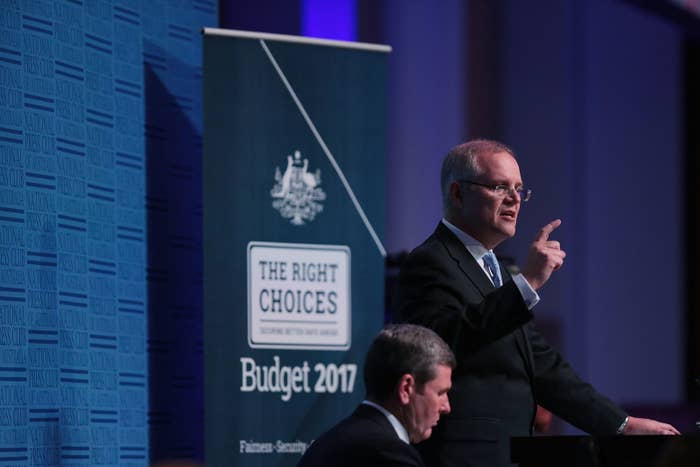Changes to government benefits and increases in taxes will have a disproportionate effect on women, who are overrepresented at lower income levels, analysis of the recent federal Budget released by the National Foundation for Australian Women has found.

The foundation said that a combination of three Budget measures could work against women, especially those earning below average wages, who could in some circumstances be hit with effective marginal tax rates of 100%.
Effective marginal tax rates measure the proportion of each extra dollar of earnings above a certain threshold that is lost to income tax and the withdrawal of a means tested government payment such as a family tax benefit or pension.
The first of the three measures that could work against women is the half a percent increase in the Medicare levy, which affects those on incomes greater than $21,644, and is a flat tax rather that a progressive tax, meaning you pay the same percentage whether you're earning $500 or $5,000 a week.

"Women are overrepresented among lower income earners, so any measure that increases the tax burden on low income earners has a disproportionate effect on women," the foundation's Gender lens on the budget report noted.
The second measure is the reduction of the HECS repayment threshold to $42,000, which would "disproportionately affect women", the analysis found, as they earn less over a lifetime of employment and "particularly so in the first 10 or so years after graduation".

"The gender pay gap is apparent in starting salaries for university graduates – there is an average gender pay gap for recent graduates of 9.4% favouring males," the report said.
"As a result, women are more likely to be caught by the reduced repayment threshold and have a lower weekly take home pay than previously.
"In effect, graduates will not just begin repaying HELP loans sooner, but lower paid graduates will pay a higher proportion of their income."
The final measure is a freeze on Family Tax Benefit Part A at current rates until 2019 (instead of increasing in line with inflation).

The two year freeze will pay for childcare reform.
"Adding these repayments to proposed increases in the Medicare Levy and changes to other benefits such as rental assistance will lead to an effective marginal tax rate of 100% for some women, particularly as Family Tax Benefit Part A begins to decrease at $51,903," the report found.
"Graduates caught between these policies will experience considerable financial stress; graduates earning $51,000, most of whom are likely to be women, will have less disposable income than someone earning $32,000."
National Foundation for Women founder Marie Coleman said her organisation deplored the "increasing lack of transparency in the Budget material".
"We have noted the disappearance from budget papers of many of the tables which once allowed careful analysis of historical trends, and the impacts of measures on individuals and family types," Coleman wrote.
"There has not been any effective gender aware analysis in the formation of this budget."
Coleman commended the government for trying to find revenue to fund "decent quality public services" and noted significant improvements in "infrastructure, disability support, health and housing".
The report concluded: "We are at a loss to understand how measures could have been introduced in different portfolios which come together to produce effective marginal tax rates of up to 100% or more when the government continues to emphasise the need for greater productivity and to encourage female workforce attachment."
